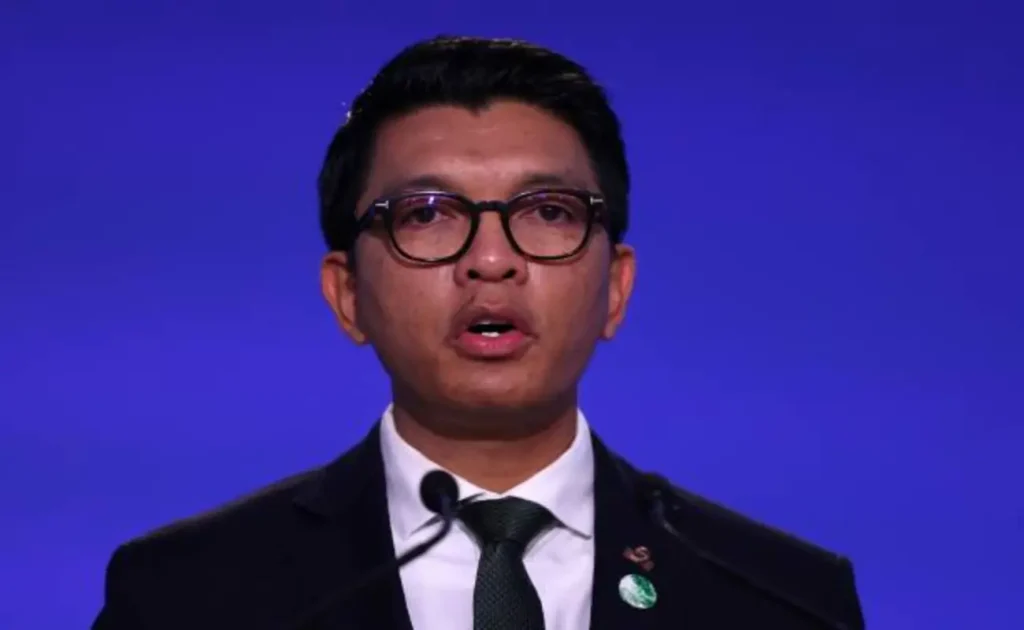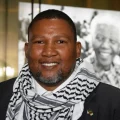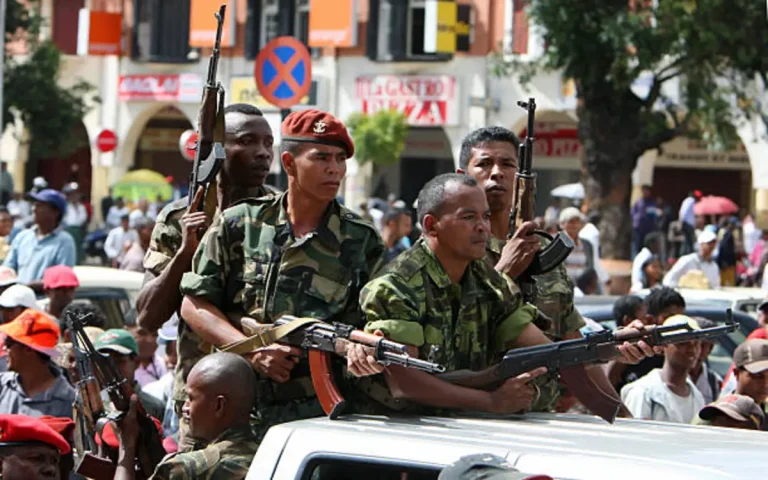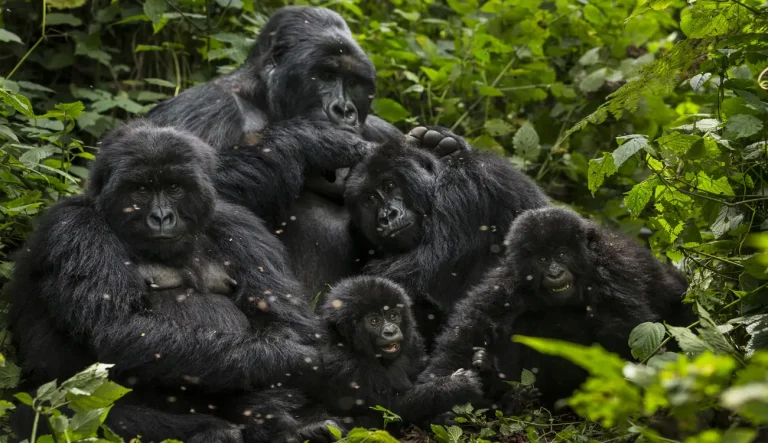
Madagascar President Andry Rajoelina delivers a national statement during COP26 at the SECC in Glasgow, United Kingdom, on November 2, 2021. Adrian Dennis/Getty Images
Hundreds of demonstrators in the capital celebrated as soldiers drove into the city center and set up checkpoints around government buildings.
Madagascar Soldiers Move After Impeachment Vote
The impeachment motion in the National Assembly accused the president of breaching constitutional limits and failing to address acute shortages of power and fuel that triggered widespread anger.
Opposition lawmakers said the vote met the required threshold and that the High Constitutional Court would confirm the process, though the court’s position remained unclear at the time of the army’s announcement.
Security footage and social media clips showed protesters and soldiers in close proximity around the presidential precinct before the army declared control.
Background On Madagascar Soldiers And The Political Crisis
Protests began over persistent blackouts, fuel scarcity and rising living costs and expanded into mass demonstrations calling for a change of government.
Analysts said the unrest fed long-standing grievances over corruption, weak public services and economic stagnation that have affected large parts of the country.
The military’s intervention followed weeks of escalating clashes between demonstrators and security forces and a breakdown in trust between the presidency and several parliamentary blocs.
Madagascar Soldiers Face International Pressure
Regional bodies signalled swift concern and took diplomatic measures after the military declared itself in charge, warning that any transfer of power outside constitutional channels would have consequences.
Several foreign missions issued statements urging restraint and a prompt return to civilian governance while calling for protection of civilians and journalists.
Potential Regional And Economic Effects Of The Madagascar Soldiers’ Move
Economic analysts warned that prolonged instability could disrupt tourism, mining logistics and investment flows that shore up Madagascar’s fragile economy.
Some international firms operating logistics and resource projects on the island temporarily paused operations and restricted travel for staff pending further security assessments.
Madagascar Soldiers And The New Military Leadership
The officer who emerged as the coup leader previously commanded an elite unit and has publicly broken from the president in recent months, citing concerns about the use of force against protesters.
The military leader said the armed forces would not tolerate actions that deepen national division and pledged to organise a roadmap toward national reconciliation and elections under a transitional structure.
Observers cautioned that any roadmap would depend on the extent of support the military could secure from regional commanders and civilian institutions.
Madagascar Soldiers And Civil Society Calls For Dialogue
Civic groups and human rights organisations called for immediate dialogue involving political parties, civil society and the army to prevent the crisis from deepening.
Local aid agencies warned that disruptions could hinder humanitarian operations already stretched by recent cyclones and drought conditions in rural provinces.
Madagascar Soldiers, Governance And The Legal Ambiguity
Legal experts said the constitutional text provided limited clarity on succession in the case of simultaneous moves by parliament and the armed forces, a gap that has complicated the immediate transfer of authority.
The unresolved legal questions have prompted calls for negotiators to convene a neutral arbitration process to chart a lawful path back to civilian control.
International Monitoring And The Role Of Institutions
Foreign partners and regional mediators are preparing to dispatch envoys to Antananarivo to press for a rapid negotiated settlement and to assess humanitarian needs on the ground.
International organisations that support democratic transition mechanisms have warned that sanctions or suspension from regional blocs could follow if constitutional order is not restored.
Any Historical Context?
Madagascar’s political history has seen previous episodes of military intervention and contested transfers of power, which analysts say informs current actors’ calculations.
The president’s political trajectory includes an earlier rise to power during a period of unrest and contested governance that continues to shape public trust in institutions.
For many citizens, immediate priorities remain access to electricity, fuel and food security rather than partisan disputes among elites.
Regional mediators hope to broker a short-term ceasefire among armed actors and opposition forces, followed by an agreed transitional council to manage preparations for credible elections.
Diplomats said the credibility of any transitional arrangement would hinge on transparent timelines, an inclusive composition and safeguards for civil liberties.
For now, life in the capital continues under a heightened security presence while shops and markets tentatively reopen under army supervision.
Rajoelina’s earlier international engagement included a national address at the COP26 climate summit, which drew global attention to environmental challenges in Madagascar’s fragile ecosystem.
Related: Madagascar presidency alleges coup plot as soldiers join anti-government protests
Previous reports by international correspondents have chronicled the cyclical nature of political instability in the country and the frequent role of the military in governance transitions.
The coverage of Rajoelina’s earlier presidency documented similar challenges in restoring democratic legitimacy and public trust.
The African Union urged immediate restoration of constitutional order and dialogue among all political factions to prevent further instability.





